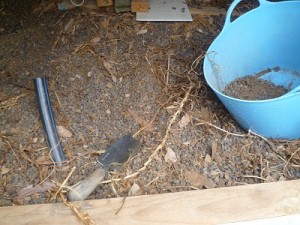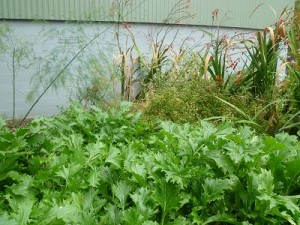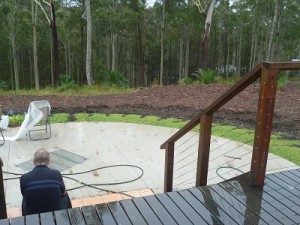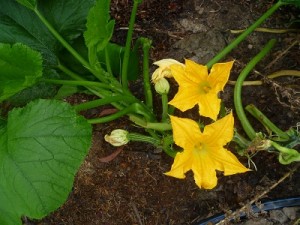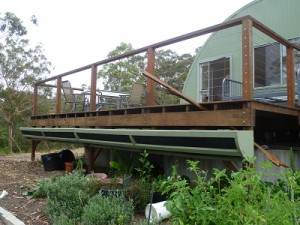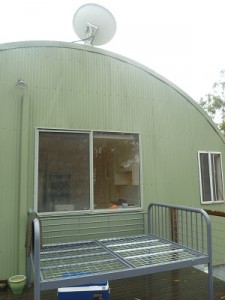In a world first, Ambit Gambit blogger Ronda Jambe publishes her exclusive interview with acclaimed writer, the late Michael Crichton. The interview focusses on his 2004 novel State of Fear, in which he posits a media/legal/political conspiracy to create fear in citizens. His philosophy, deeply informed by his wide reading and probably genius level intelligence, is that science should be continuously examined for bias through independent mechanisms. This, he believes, would have stopped the eugenics movement in its tracks before the Germans extrapolated its implications with devastating efficiency.
This is the edited transcript:
RJ: Mr Crichton, since publication of State of Fear in 2004 the evidence has continued to pour in on climate change. Have your opinions changed at all?
MC: I believe I was absolutely correct in my argument that the science underpinning policy on climate change is tainted. However, my assessment of who is pulling the strings and why has shifted somewhat. I also see now that the evidence of multiple stressors on a wide range of planetary support systems is overwhelming.
RJ: Do you still think the legal/media/government forces are aligned to misguide the public?
MC: Yes, I do, but my understanding has become much more nuanced. You see, even in my present circumstances I have access to wifi, and have done a great deal of reading about both the science and the politics of climate change. The influence of the fossil fuel industry, and the interconnections between those with the most power and ability to fund communication projects, such as banks and global media outlets, often works against the remaining democratic activities of the state. Right now we are seeing that in relation to the gun lobby in the United States, which is largely funded by arms manufacturers. Because I am insistent on research and rigour, I have provided some links to articles about the funding of the NRA, which I thank you for publishing.
How to Break NRA’s Grip on Politics: Michael R. Bloomberg …
http://www.bloomberg.com/news/2012-07-26/how-to-break-nra-s-grip-on-politics-michael-r-bloomberg.html
Jul 26, 2012 – The NRA is a $200 million-plus-a-year lobbying juggernaut, with much of its funding coming from gun manufacturers and merchandising…
Who Really Funds the NRA? Not It’s Members
http://michael-in-norfolk.blogspot.com.au/2012/12/who-really-funds-nra-not-its-members.html
RJ: Thank you, our readers appreciate that. Is your concern really about governance?
MC: Most natural systems, including social systems, can be modelled as non-linear complex adaptive systems. In physical systems, the laws of physics, chemistry, gravity, etc drive the systems. But in human systems, shared values drive the system. Systems of governance are subject to these same rules, but look different in every culture. Thus, what passes for good governance in Nigeria is more violent and corrupt than the US version, but maybe not by all that much, as Nazi Germany showed us all.
The power of these values can be, and is, manipulated by those who can speak the loudest. That usually means those who have the money to buy time and influence through the media and politicans.
The crunch comes when this powerful elite don’t pay attention to the big bifurcations in the system that their own imbalanced efforts create. Think: the Reformation and the papal corruption. Traces of that self-serving but ultimately self-destructive mind set can be seen today in the many sex abuse scandals that are plaguing the Catholic Church all over the world.
RJ: Do you accept the view that a huge catastropic collapse of society, a bifurcation, as you call it, is likely to happen on a global scale in this century?
MC: Even mathematically, any system with a number of exponentially increasing indicators is inevitably going to break and form a new system. And certainly all the indicators of environmental change are increasing at rates far above what humanity and many other natural systems can adapt to, with population as the leading example. We see this in the work of the Stockholm Resilience Centre and others on planetary boundaries. What is likely is that some elites will find niches of safety for themselves and their families.
http://www.stockholmresilience.org/research/researchnews/tippingtowardstheunknown/thenineplanetaryboundaries.4.1fe8f33123572b59ab80007039.html
RJ: So for you the global economic problems are just a side show?
MC: The words for economy and ecology come from the same Greek root, meaning ‘to manage’. They are different aspects of the human impact on our limited system, the age of the anthropocene, as Paul Cruxen and others have dubbed our recent past.
RJ: Do you see any way to avoid the coming multiple collapses of human and natural systems?
MC: The evolution, genetics and therefore the psychological programming of homo sapiens is oriented towards protection and promotion of the group. Only in the past century has humanity even begun to think in terms of groups larger than the tribe, or town, or nation state. There have of course been precursors, such as the Holy Roman Empire,which had limited authority and didn’t, in any case, face global constraints such as we now have. It will shortly become a struggle for what’s left that can create pockets of greater resilience. If we can shift our thinking and action and self-management to focus on securing the fundamentals of food and water and security, then some areas and some groups will be more likely to ride out this century successfully.
RJ: One last observation – You have great resonance with the work of Bjorn Lomborg. He, too, in The Sceptical Environmentalist, argues for evidence-based policy. Yet the rules of evidence are, as you eloquently point out at the end of State of Fear, are themselves subject to agenda setting.
MC: Yes, I have said that everyone has an agenda, except me.
RJ: That’s another thing we have in common, then. Thank you so much. Is there anything you would like to add?
MC: I would only like to draw the sceptics attention to a recent report from NASA, whose records I trust, on the speed and scale of global climate temperature rises.
2012 SUSTAINED LONG-TERM CLIMATE WARMING TREND, NASA FINDS
Scientists say 2012 was the ninth warmest of any year since 1880,
continuing a long-term trend of rising global temperatures. With the exception of 1998,
the nine warmest years in the 132-year record all have occurred since 2000, with
2010 and 2005 ranking as the hottest years on record.
-- full story > http://www.sciencedaily.com/releases/2013/01/130115190218.htm
Next week Ronda, wearing a NASA-surplus astronaut’s suit, warmly chats
with Hitler.
